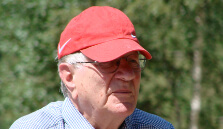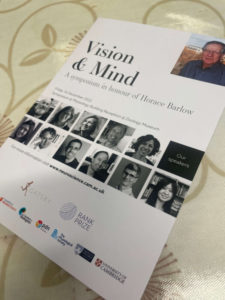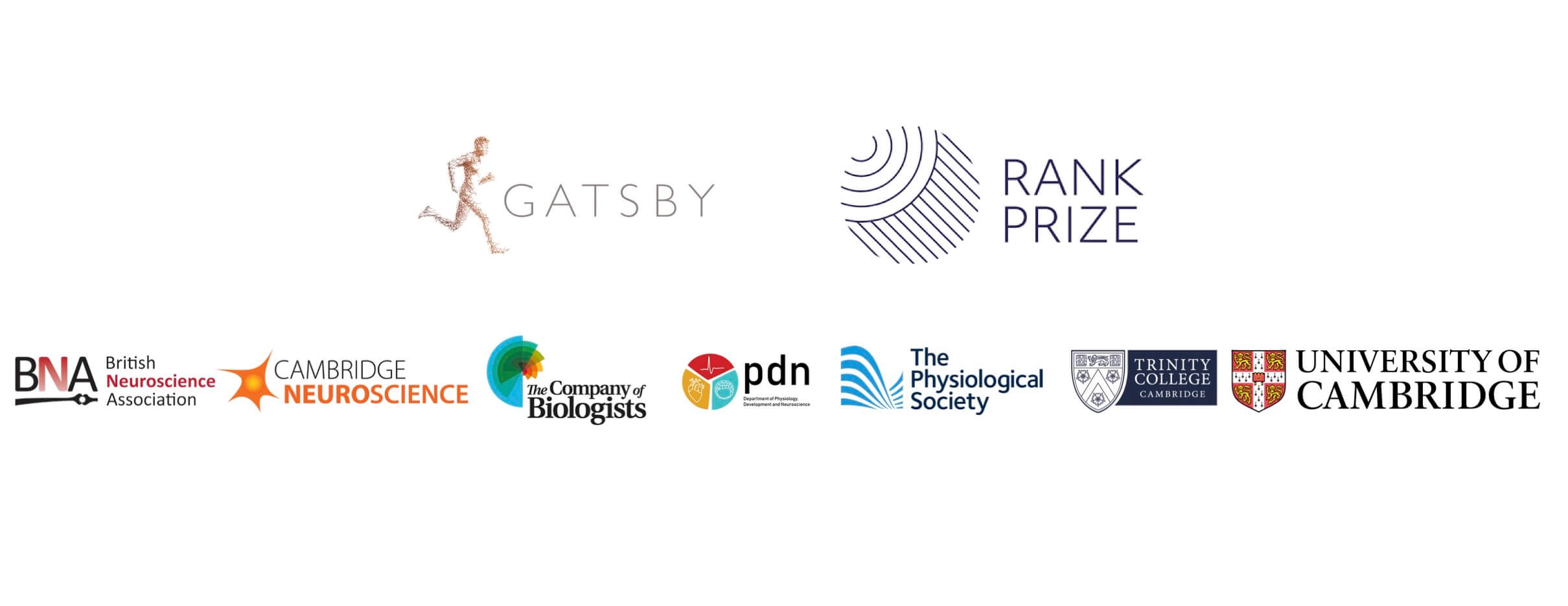
A symposium was held in honour of Horace Barlow’s 101 birthday in the Department of Physiology, Development and Neuroscience, University of Cambridge on December 16th 2022. There were 190 registered delegates and about 160 people were present throughout the day, including nearly 100 scientists in training (postdoctoral trainees, students at all levels). Of the delegates 88% are UK based, 12% overseas including EU, Japan, Canada and the US. Arrangements were made for virtual attendance for those unable to travel because of the bitterly cold weather and train strikes.
Barlow was one of the great figures of modern neuroscience, well known for his path-breaking contributions to visual neurophysiology, psychophysics, and brain theory. More than any of his contemporaries, Barlow’s work has a continuing influence on modern neuroscience. In planning the meeting, we sought not to look back at Barlow’s career, but rather to look at current developments stemming from the continuing influence and impact of his work. An outstanding group of speakers addressed the impact of his influence in the domains of perception, neurophysiology, and theory.
 The meeting was bookended by keynote addresses by Markus Meister and William Bialek, each of whom offered a unique perspective on Barlow’s enduring influence, and fully fleshed out by eight other renowned and lucid speakers.
The meeting was bookended by keynote addresses by Markus Meister and William Bialek, each of whom offered a unique perspective on Barlow’s enduring influence, and fully fleshed out by eight other renowned and lucid speakers.
Meister’s opening keynote, Horace Barlow: A neuroscientist ahead of his time, discussed a half dozen of Barlow’s most influential papers, tracing their inspiration and delineating their continuing impact on both Meister’s own work and the field’s.
The next group of speakers in the morning – Fred Rieke, Denis Pelli, Anya Hurlbert, and Concetta Morrone – explored modern concepts of visual psychophysics and neurophysiology in the domains of visual sensitivity and perception that have emerged from Barlow’s early work.
After lunch, the next group of speakers – Eero Simoncelli, Stephanie Palmer, Doris Tsao, and Michael Shadlen – explored the ways in which Barlow’s foundational concept of efficient coding continues to drive contemporary theories and experiments in neuroscience, perception, and decision making.
Bialek’s closing keynote, Efficient representation, far from the source, explored the ways in which the efficient coding hypothesis has unexpectedly driven research in such diverse areas of biology as embryonic development, gene structure, and the control of gene expression.
The discussions were lively and broad-ranging. There was much positive feedback from speakers and attendees, and it seems that the meeting was almost universally regarded as a great success.
The organisers would like to thank all organisations listed below for their support of the Symposium.

Scientific committee: William Bialek, Zoe Kourtzi, Tony Movshon, Daniel Wolpert.
Organising committee: Miranda Barlow, Roger Keynes, Tony Movshon
May 2023

Posted on 25/05/2023